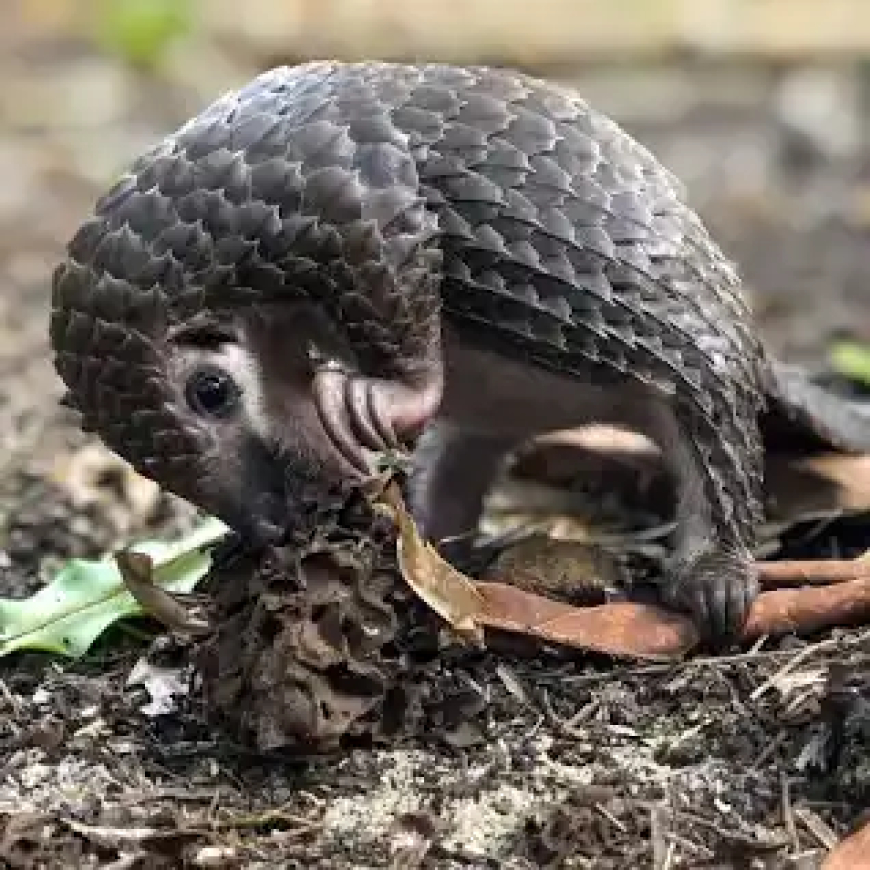Illegal trade, Search for medicine undermining the protection of Pangolin species

Pangolins commonly known as Scaly anteaters are mammals of the order Pholidota with species found in Asia, and the majority in sub-Saharan according to wildlife organizations describing them as the world’s most trafficked animal.
Protection of Uganda’s wildlife consists of several endangered species and pangolins among them to be protected in accordance with the Convention on International Trade in Endangered Species of Wild Fauna and Flora (CITES), signed in Washington, D.C. in 1973.
In Uganda for instance traffickers often sell pangolin meat locally and ship the scales to Asia, where they are in demand for use in traditional medicine. The growing illegal trade has prompted plans by wildlife organizations in Uganda for a rehabilitation center for sick or rescued pangolins as well as the deployment of sniffer dogs specially trained to detect the scales’ pungent aroma.
Authorities speak about the pangolin.
When I and my colleagues visited Uganda Revenue Authority depository for illicit goods, the Pangolin scales were visible proving the increasing pressure from poachers of the anteater.
While speaking to the URA Commissioner for Customs, Abel Kagumire, he told us that says that because of their mandate to monitor trade across borders and collect data, they are also mandated to ensure that such products are not traded.
He called for interagency and international cooperation to protect certain species against over-exploitation through international trade.
“Wild fauna and flora in their many forms are an irreplaceable part of the natural systems of the earth which must be protected for this and the generations to come; there is an ever-growing value from aesthetic, scientific, cultural, recreational and economic points of view,” he said.
Wildlife organizations take.
Experts under the African Pangolin Working Group, a conservation organization with different members from environment organizations said Africa’s four species of pangolins are under increasing pressure from poachers adding that while commercial trade in all species is forbidden, international confiscations of African pangolin scales amounted to about 47 tons in 2017, more than double the quantity seized in the previous year.
Every year World Pangolin Day is celebrated on 18 February 202 an opportunity for pangolin enthusiasts to join together in raising awareness about these unique mammals – and their plight to restore the Pangolin numbers that are rapidly declining in Asia and Africa.
This year 2023 in Uganda various wildlife organizations joined the rest of the world to celebrate it.
World Animal Protection (WAP) World Animal Protection, formerly The World Society for the Protection of Animals an international non-profit animal rights organization used this day to alert people and the decision makers about the dangers of living in a world without pangolins which help us get rid of termites and roll the soil.
While speaking to the WAP wildlife campaign Manager Edith Kabasiime in her office, she said that World Pangolin Day is a reminder of the raging war for resources between man and wildlife.
“We lost the rhinos and Uganda Wildlife Authority is struggling to reintroduce them. We do not want the same to happen to the pangolin which is cooked alive to retrieve the scales. It is subjected to so much trauma during the hunt and during its extraction from its habitat.” he said


A live Pangolin being rescued by Operation Dromana, by the Uganda Wildlife Crime Unit (UWCU) traffickers near Soroti district
Local Trade for pangolins.
Various people I spoke to revealed the danger the Pangolins s going through and some suggesting possible ways to protect them;
“The pangolin hunter in the village gets between UGX10, 000 to sUGX50, 000. Every nature lover should spend some time and learn something about this mammal which at first sight looks: lovely, quiet, calm, and composed. As fate would have it, it is endangered by extinction as a result of greed and myths that are endangering its survival” Rebeca Sandoral said an international animal welfare lobbyist in an online interview.
She adds that pangolin scales have been found to originate from as far as Ivory Coast in West Africa adding that whether or not they are from Uganda, they have to be confiscated and treated according to international laws.
"Pangolins are facing an existential crisis and a raft of welfare problems. They are forcefully extracted from their habitats in the wild for extraction of their scales under the guise of satisfying the global market for traditional medicine” she said
Culture contributes to the vice.
Because of its character, traditional practitioners grind its scales to powder to make love potions. “A dose makes your spouse obedient and humble. I was told my brother's wife who was to cruel would change if the powder was put in her food.
In Buganda culture, it is called Olugave and it is not eaten by those from the Pangolin clan. A larger-than-life artist’s impression of the shy mammal graces Kabaka Ajangala Avenue. Clansmen frequent the site to have a chance to see what their totem looks like. Among the Acholi, it is rarely seen and those who see it are believed to become stinking rich in Gulu. “So it is believed to be a bringer of good luck,” says Didas Okot. “When seen people are in the habit of calling the entire family to clap their eyes on it before it burrows in the earth.”
Researchers Vs Conservationists.
Another Ugandan Conservationist Umar Twinemasiko said that the rising danger to Pangolins is attributed to human and climate-induced threats that have soared, threatening their survival while worsening ecosystem imbalances and risk to public health.
He called for the enforcement of laws, enhanced surveillance, and public awareness to demystify myths around pangolin scales in a bid to halt their illegal hunting.
Pangolin scales contain keratin, a protein also found in rhino horn and human fingernails. There is no scientific proof that they provide any medicinal value. Conservationists say well over 1 million pangolins have been poached since around 2000; the various kinds range from vulnerable to critically endangered on a list of threatened species.
All eight species of Pangolins were in 2016 listed at Appendix one of the Convention on International Trade in Endangered Species of Wild Fauna and Flora (CITES), granting them the highest level of protection amid wanton exploitation.
According to World Animal Protection, four species of pangolin are found in Africa and the other four in Asia while their slow reproductive rate, where females give birth to only one or two offspring annually, has complicated efforts to restore their population amid overhunting and climate-related threats.
New research suggests the extinction crisis may be even worse than we thought. More than half of species that have so far evaded any official conservation assessment are threatened with extinction, according to predictions by researchers from the Norwegian University of Science and Technology.
However, while species like pandas and tigers are well studied, researchers don’t know enough about some species to properly assess their conservation status. These “data deficient” species make up around 17% of the nearly 150,000 species currently assessed.












